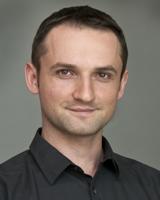event
IRIM Robotics Seminar—Tim Kowalewski
Primary tabs
The Institute for Robotics and Intelligent Machines presents “Computational Surgery: Helping Surgeons Avoid Mistakes with Better Robots” by Tim Kowalewski of the University of Minnesota. The event will be held at the Scheller College of Business Building, Room 200, from 12:15-1:15 p.m. and is open to the public.
Abstract
Preventable medical errors are the third leading cause of death in the United States. Despite more than a decade of clinician-led efforts in policy and education, this issue remains. In the meantime, hospitals have adopted surgical robots at a dramatic pace, which provides opportunities to augment the art of surgery with more rigorous, quantitative science. The situation gives rise to the field of computational surgery, which promises to address long-standing challenges in healthcare like the prevalence of human error.
This talk will focus on two research problems in this area. First, how do we quantify and improve the existing skills of a surgeon? Answering this question requires a method with scores that correlate with patient outcomes, which can scale to cope with 51 million annual surgeries in the United States, and that can generalize across the diversity of surgical procedures or specialties. Second, how can we build new robotic tools that render surgical tasks fundamentally easier, perhaps making errors impossible in the first place? This second issue will survey multiple topics such as policy-blended, human-robot shared control to ensure safety in robotic tissue grasping; novel patient-specific catheter robots that safely remove plaque via inverse design of soft robots and a theranostic excimer laser; and robotic 3-D bioprinting directly onto moving human anatomy to explore new reconstructive procedures.
Bio
Timothy M. Kowalewski completed his Ph.D. in electrical engineering in quantitative surgical skill evaluation at the University of Washington’s Biorobotics Lab under the direction of Professor Blake Hannaford. His work was recognized with a best doctoral candidate award at the American College of Surgeons AEI Consortium on Surgical Robotics and Simulation.
Kowalewski was a research scientist with DARPA’s “Traumapod: Operating Room of the Future” project. He commercialized his Ph.D. work for quantitative skill evaluation (CSATS Inc. and Simulab Corp., Seattle, Wash.) and also co-pioneered the use of crowdsourcing for high-volume assessment of surgical skills, a technique that enjoys increasingly widespread use in research and practice.
Currently, Kowalewski is an assistant professor in the Department of Mechanical Engineering at the University of Minnesota, where he started the Medical Robotics and Devices Lab.
Groups
Status
- Workflow Status:Published
- Created By:Josie Giles
- Created:08/28/2017
- Modified By:Josie Giles
- Modified:11/03/2017
Categories
Keywords
Target Audience

